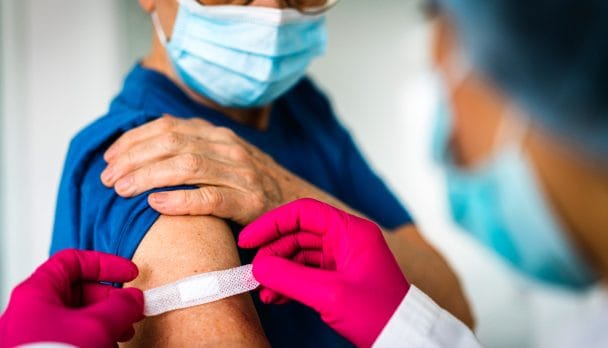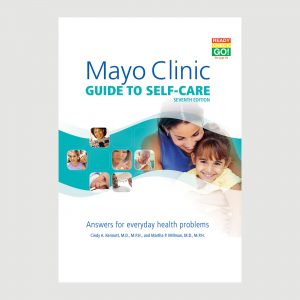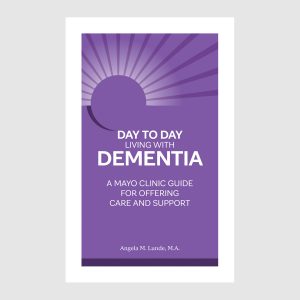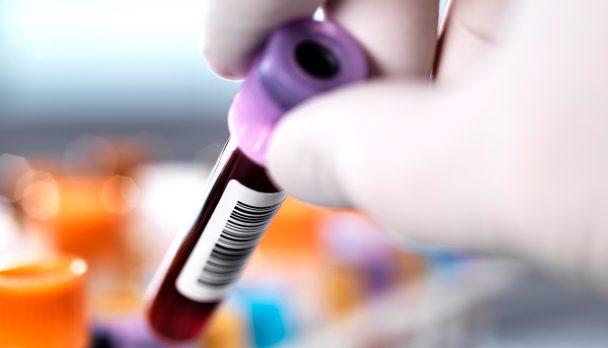
Mayo Clinic does not endorse companies or products. Advertising revenue supports our not-for-profit mission.
In years past, if you were diagnosed with hormone receptor (HR)-negative, human epidermal growth factor receptor 2 (HER2)-negative breast cancer, your medical treatment options would have been limited.
More common in people who are younger than 40, in people who are Black and in those who have a BRCA gene change, also called a mutation, this form of breast cancer tends to grow more rapidly than other types of breast cancer. As a result, HR-negative, HER2-negative breast cancer is more likely to be identified by symptoms or an examination instead of a screening mammogram. In addition, medical therapies that target HRs or HER2 proteins commonly don’t work in people with this cancer type, which limits the number of effective options.
However, recent advances may soon change the outlook for this difficult-to-treat form of breast cancer.
What is HR-negative, HER2-negative breast cancer?
Hormone receptor-negative, HER2-negative breast cancer accounts for approximately 15% of breast cancers diagnosed worldwide, affecting about 200,000 people a year.
Confirming a diagnosis of HR-negative, HER2-negative breast cancer starts with a biopsy, a procedure to remove a sample of tumor tissue for testing. A pathologist then analyzes the tumor tissue to better understand its hormone receptor (HR) and HER2 status.
- Hormone receptor-negative breast cancer cells lack estrogen receptors and progesterone receptors. In other words, the cancer cells are not sensitive to estrogen or progesterone hormones.
- HER2-negative breast cancer cells either lack or have very low levels of HER2 proteins on the cell surface.
Breast cancer cells that test negative for hormone receptors and HER2 proteins are considered HR negative, HER2 negative. This type of cancer can sometimes be referred to using the term “triple negative” based on the negative test result for the two hormone receptors and HER2 proteins.
Why is HR-negative, HER2-negative breast cancer difficult to treat?
Many targeted breast cancer treatments don’t work on HR-negative, HER2-negative breast cancer cells.
For example, HER2-negative cancers usually do not respond to HER2-targeted therapies, such as trastuzumab (Herceptin). Trastuzumab is an antibody that binds to HER2 proteins like armor, stopping them from triggering cell growth. This cancer-fighting mechanism is not helpful in HR-negative, HER2-negative breast cancers that have few or no HER2 proteins on their cell surfaces.
Similarly, healthcare professionals treat hormone receptor-positive cancers with medicines that block hormone receptors or reduce estrogen production. However, HR-negative breast cancers don’t respond to these medicines.
In addition to having fewer treatment options, HR-negative, HER2-negative breast cancer cells tend to spread quickly at a microscopic level.
The importance of repeated biopsies
Your healthcare professional may recommend that you undergo additional biopsies throughout your cancer treatment. That’s because your breast cancer type may change over time, which could open the door to additional treatment options.
For example, by taking a biopsy in a different location or at a different time, your healthcare professional may find cells that are HER2 positive rather than HER2 negative. If this is the case, your breast cancer might respond to the HER2-targeted therapies mentioned earlier.
Recent treatment advances
Most people with HR-negative, HER2-negative breast cancer are treated with chemotherapy. These medicines reach cancer cells in all parts of the body, killing any cell that is dividing rapidly.
However, in recent years, several new therapies have been developed for the treatment of specific types of HR-negative, HER2-negative breast cancer. These include the following:
PARP inhibitors
For people with HER2-negative breast cancer and a BRCA1 or BRCA2 gene change — who have already tried traditional chemotherapy — therapy with a PARP inhibitor might be an option. These oral medicines block the PARP enzyme in cancer cells and prevent them from repairing damaged DNA, so they die.
Immunotherapy
Immunotherapy also may be helpful for people with HR-negative, HER2-negative breast cancer. This form of therapy helps the immune system identify and kill cancer cells.
The immunotherapy approved for a subset of people with HR-negative, HER2-negative breast cancer is called pembrolizumab (Keytruda). It is given in combination with chemotherapy. Other immunotherapy medications under development, such as vaccines and cell-based therapies, work differently and may one day gain approval to treat more people with this form of breast cancer.
Antibody-drug conjugates
A newer HER2-targeted medication, trastuzumab deruxtecan (Enhertu), can be used to treat advanced (stage 4) HER2-low breast cancers in which the cancer cells contain some HER2 proteins but not enough to be considered HER2 positive. This therapy is an antibody-drug conjugate — a medicine that links a small amount of chemotherapy to HER2 antibodies that target HER2-low and HER2-positive cancer cells. The drug works when the antibodies attach to HER2 proteins on cancer cells and the chemotherapy molecules linked to them are released inside the cancer cells, causing them to die. This direct delivery of chemotherapy to tumor cells spares other healthy cells that aren’t cancerous. It’s not yet approved by the Food and Drug Administration to treat HER2-negative breast cancer. However, research is ongoing.
Mayo Clinic does not endorse companies or products. Advertising revenue supports our not-for-profit mission.

Relevant reading
Liam's Lonely Day
With his sister away and his mom in a meeting, Liam starts to feel pretty lonely. Kids are familiar with feeling happy or sad, but loneliness is a unique feeling that's often not discussed, including for adults! This friendly introduction to the feeling encourages readers to think of loneliness and…




















